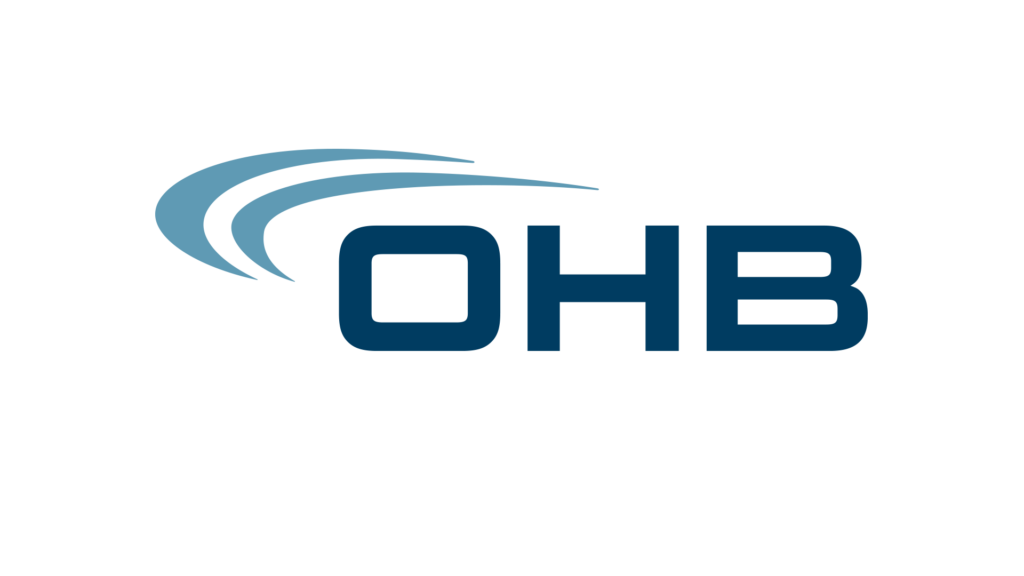Imagine walking into work and knowing you have people there who truly care about you—not just as a coworker, but as a friend. In 2025, this scenario is more than a feel-good fantasy. It's a proven strategy for happier teams, stronger engagement, and thriving organizations. But how do we get there? How do we move from polite, transactional exchanges to genuine connections that transform workplace culture? This article unpacks the journey from colleagues to friends, revealing why meaningful interactions matter now more than ever, and how any organization can spark this transformation.
Why Friendship at Work Matters in 2025
Workplaces have changed dramatically in recent years. With hybrid schedules, remote teams, and rapid digitalization, the traditional office camaraderie can feel out of reach. Yet, research consistently shows that having friends at work is a powerful driver of employee satisfaction, retention, and productivity.
According to Gallup, employees with a best friend at work are more than twice as likely to be engaged in their jobs and less likely to seek new employment. In fact, the need for social support at work surged during and after the pandemic, making genuine connections a top priority for both employees and employers.
"Work doesn’t have to be a place of isolation. It can—and should—be a place where we bring our full selves, where connection and kindness are valued as much as competence and productivity."
— Kate Pejman, engineer and advocate for authentic workplace relationships
In 2025, organizations recognize that fostering workplace friendships isn't just about boosting morale—it's about building resilient, innovative teams equipped to handle rapid change. Employees who feel connected are more likely to collaborate, share ideas, and go the extra mile for their colleagues. Meaningful interactions are the backbone of a vibrant, sustainable company culture.
From Transactional to Relational: The Psychology Behind Workplace Bonds

Why do some teams gel instantly while others remain distant and disconnected? The answer lies in the shift from transactional to relational interactions. Transactional relationships are based on exchanging information or completing tasks. They're efficient, but often lack warmth and trust.
Relational interactions, on the other hand, are built on empathy, shared experiences, and mutual support. Psychology tells us that humans are wired for connection. When we feel seen and valued, our brains release oxytocin—the bonding hormone—which increases trust and reduces stress.
Meaningful workplace friendships develop when colleagues move beyond surface-level exchanges. This involves vulnerability, active listening, and a willingness to support each other through challenges. The result? Psychological safety, where team members feel comfortable taking risks and sharing ideas without fear of judgment.
"Having a best friend at work is more than a social perk. It's the foundation for communication, commitment, and creativity."
— Gallup Workplace Insights
Understanding the psychology behind these bonds helps organizations design environments where authentic relationships can flourish.
From Colleagues to Friends: Transforming Workplace Culture through Meaningful Interactions—The Tangible Benefits
Making the leap from colleagues to friends isn't just good for individuals; it's a game-changer for organizations. Here are some of the tangible benefits:
When employees feel they belong, they're more likely to contribute their best work. Friendships in the office break down silos, encourage cross-functional collaboration, and create a sense of shared purpose.
For example, companies that prioritize meaningful interactions report higher engagement scores and improved business outcomes. According to Gallup, teams with strong friendships are more productive, safer, and more likely to delight customers.
"You’ll feel less isolated and more connected to your colleagues when you have friends in the workplace. Having emotional support fosters a sense of belonging which is crucial to job satisfaction—we all like to know we matter."
— Burnett’s Staffing
The ripple effect is clear: meaningful connections drive both personal well-being and organizational success.
Laying the Groundwork for Connection: Communication and Shared Values
Building friendships at work doesn't happen by accident. It starts with intentional communication and alignment of values. These foundational elements set the stage for authentic relationships.
Active Listening and Inclusive Language
Active listening is the cornerstone of any strong relationship. It means fully focusing on the speaker, asking clarifying questions, and responding with empathy. When colleagues feel heard, trust grows naturally.
Inclusive language is equally important. Using words that make everyone feel welcome—regardless of background, role, or identity—creates a safe space for connection. Small shifts, like saying team instead of staff or inviting input from quieter voices, can make a big difference.
"Encourage dialogue among colleagues by being approachable and willing to listen. Share your thoughts and feelings, and invite others to do the same."
— Steemit Business Insights
Aligning Personal and Company Values
Friendships thrive when people share common ground. In the workplace, this often means aligning personal values with the organization's mission and culture. When employees see their own beliefs reflected in the company's actions, they feel a deeper sense of belonging.
Organizations can clarify and communicate their core values through transparent leadership, recognition programs, and storytelling. Employees, in turn, should reflect on what matters most to them and seek out colleagues who share similar passions or principles.
By fostering open communication and shared values, organizations lay the groundwork for meaningful interactions that transform workplace culture.
Practical Strategies to Spark Authentic Connections
Turning theory into action requires practical steps that anyone can implement, regardless of role or budget. Here’s how to move from colleagues to friends, one interaction at a time.
Micro Gestures that Build Trust Daily
You don’t need grand gestures to make a big impact. In fact, it's the small, consistent actions that often matter most. Here are a few micro gestures that build trust every day:
- Greet colleagues by name each morning.
- Offer genuine compliments on a job well done.
- Remember and acknowledge birthdays or milestones.
- Invite a teammate for a quick coffee or lunch.
- Offer help when you notice someone struggling.
These simple acts signal care and attentiveness. Over time, they create an environment where deeper connections can grow.
Team Building Ideas on Any Budget
Team building doesn’t require expensive retreats or elaborate events. Here are cost-effective ideas for sparking authentic connections:
- Host a show and tell session where team members share a hobby or passion.
- Organize a potluck lunch or themed snack break.
- Start a book, movie, or hobby club (virtual or in-person).
- Volunteer together for a local cause.
- Use digital tools to run virtual quizzes or games for remote teams.
For organizations seeking a seamless way to foster these connections, platforms like Neroia make it easy. Neroia’s AI-driven recommendations help colleagues effortlessly discover shared interests and join small-group activities—whether it’s a lunchtime walk, a wellness challenge, or a cultural outing—tailored to everyone’s schedules and preferences.
"Sometimes, the smallest moments create the deepest connections... Passion is contagious—when you light up about something, others feel it too."
— Tiny Buddha Workplace Stories
By making connection opportunities accessible and inclusive, organizations can nurture friendships that last.
Navigating Boundaries and Potential Pitfalls
While workplace friendships offer many benefits, they also come with challenges. Navigating boundaries and handling conflicts respectfully is essential for maintaining professionalism and harmony.
Respecting Professional Lines without Losing Warmth
It’s possible to be both friendly and professional. The key is to strike a balance:
- Keep sensitive or private matters out of public channels.
- Avoid favoritism or exclusive cliques that leave others out.
- Be mindful of oversharing—respect your own and others’ privacy.
- Support colleagues without crossing into personal territory unless invited.
"Building friendships at work doesn’t mean oversharing or blurring professional lines. It’s about fostering trust, mutual respect, and human connection—without pressure to disclose every detail of our personal lives."
— Tiny Buddha Workplace Stories
Setting healthy boundaries ensures that friendships enhance, rather than disrupt, the work environment.
Handling Conflicts Between Friends Fairly
Disagreements are inevitable, even among friends. The key is to address conflicts directly and constructively:
- Acknowledge the issue calmly and privately.
- Listen to each other’s perspectives without judgment.
- Focus on the facts, not personal feelings.
- Work together to find a fair solution.
- Agree on how to prevent similar issues in the future.
Resolving conflicts with empathy and transparency strengthens trust and sets a positive example for the entire team.
Leading the Way: How Managers Champion a Friendlier Culture

Managers play a pivotal role in shaping workplace relationships. Their actions and attitudes set the tone for the entire organization.
Creating Intentional Spaces for Interaction
Managers can champion a friendlier culture by:
- Scheduling regular team check-ins that include time for informal conversation.
- Encouraging cross-departmental projects to break down silos.
- Providing resources for team-building activities, both online and offline.
- Recognizing and celebrating team milestones and individual achievements.
Intentional spaces—like coffee corners, wellness rooms, or virtual lounges—invite spontaneous connection and authentic dialogue. When leaders participate in these activities, they signal that relationships matter.
"Intentionality starts with leaders who celebrate and champion best friends at work, from the C-suite to front-line managers. Employees learn behavioral norms and cues from their managers and leaders."
— Gallup Workplace Insights
Measuring the Impact on Engagement and Retention
To ensure efforts are working, organizations should measure the impact of friendship-driven culture initiatives. This can be done through:
- Regular employee engagement surveys.
- Tracking retention and turnover rates.
- Monitoring participation in team-building activities.
- Gathering feedback via anonymous suggestion boxes or digital tools.
Platforms like Neroia provide anonymized insights into engagement trends, helping organizations adapt and improve their strategies while maintaining user privacy.
"Companies that prioritize employee experience and well-being are more likely to create a thriving workplace culture that supports business success."
— Stratus HR Insights
Data-driven measurement ensures that the journey from colleagues to friends delivers real, lasting results.
Bullet List 1: Signs Your Workplace Culture Is Becoming Friendlier
- Employees greet each other and share personal updates.
- Team members collaborate across departments.
- Feedback is given constructively and received openly.
- Social activities are well-attended and inclusive.
- New hires integrate quickly and feel welcomed.
Bullet List 2: Common Barriers to Workplace Friendship (and How to Overcome Them)
- Remote work isolation → Schedule regular virtual coffee breaks.
- Hierarchical structures → Encourage cross-level mentoring.
- Cultural differences → Offer diversity and inclusion training.
- Lack of time → Embed connection moments into daily routines.
- Fear of overstepping → Clarify professional boundaries and expectations.
Ordered List: Steps to Start Building Friendships at Work
- Reflect on your own values and what you seek in a friendship.
- Take initiative—invite a colleague for coffee or a chat.
- Participate in team-building or social activities.
- Offer support or assistance when you see a need.
- Maintain boundaries while being open and authentic.
Conclusion
From Colleagues to Friends: Transforming Workplace Culture through Meaningful Interactions isn't just a trend—it's the future of work. In 2025, organizations that prioritize authentic connections see higher engagement, innovation, and resilience. By fostering open communication, aligning values, and providing intentional spaces for interaction, any workplace can unlock the full potential of its people.
Platforms like Neroia make it effortless to discover shared interests and spark genuine friendships, no matter where or how your team works. As you invest in meaningful interactions, you’re not just improving morale—you’re building a culture where everyone feels seen, supported, and inspired to do their best.
"We all deserve to feel connected, supported, and seen, especially in the places where we spend so much of our time. So, why not break the mold?"
— Kate Pejman
With the right mindset and strategies, transforming colleagues into friends is within reach—and the rewards extend far beyond the office walls.










